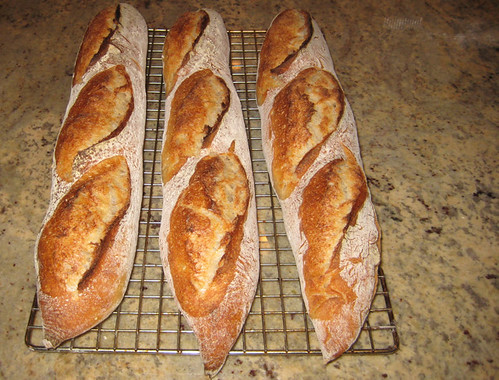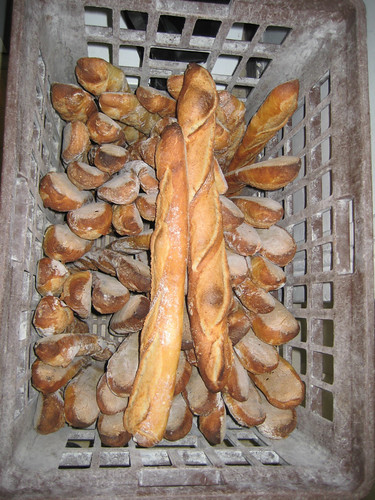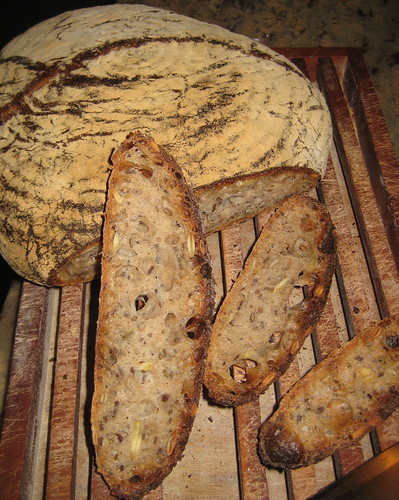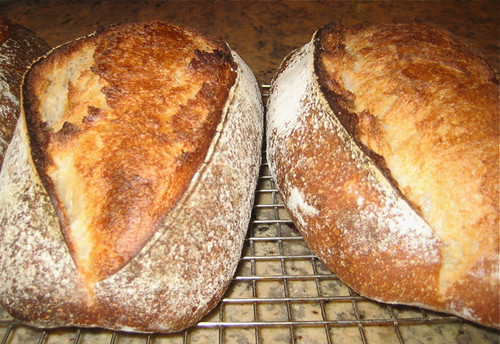
Norwich Sourdough
In the age of speed and instant gratification, time is an enemy. We want things now. We don't want to wait. We want results. And so, for time-pressed bakers, we have products like yeast that can speed things up.
But if you are concerned about things like the flavor of bread, the texture of the crumb, and the crunchiness of the crust, and even its color, speed is an enemy. Rushing will mean an inferior result. So many of the techniques artisan bakers use, either with sourdough, which takes successive "feedings" to grow into a loaf, or refrigeration, which dramatically slows down the activity of yeast, are meant to stretch out time so that all the crucial characteristics of a great loaf can develop.
For someone always in a rush, slowing down the baking process can be irksome. But for a home baker, the slow development of dough actually works in your favor.
How so?
Because it means you can fit baking into your own schedule, mixing the dough after dinner, putting it in the refrigerator, and then baking off the next day, when you have time.
For example, for the batard pictured above, I refreshed the sourdough late Thursday night. Then I mixed the dough with the bubbly starter early Friday morning. While I was working, the dough went through a 2-1/2 hour first rise, and then I shaped the loaves around lunch time on Friday, when I had another window of time. Since I couldn't bake in the afternoon, I put the loaves into the refrigerator to slow down (or retard) the dough.
They rested there, for about 8 hours, the sourdough doing its mojo - the flavor, crust, internal holes all developing - until late Friday night when I baked them off. (I was a bit skeptical they could be baked straight out of the refrig, as Susan at Wild Yeast suggested, but they turned out just fine -- oven spring, crunchy crust, with a hint of rye.)
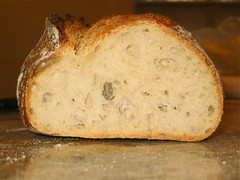
I often time this process to bake on Saturday morning, but I had a compost meeting at the garden (no joke!) so I decided to bake Friday night instead. And since the loaves were made purely with sourdough, they tend to improve with a bit of aging and were scrumptious for breakfast the next day. Sourdough loaves will also last a week without going stale -- one of the qualities of working with natural yeast.
In Lahey's recipe, you don't knead. The long rise of the dough develops the gluten necessary to make the loaf. So if you're trying to fit baking into a busy schedule, time is on your side. The slow rise always wins the race.
- Samuel Fromartz







 (interview
(interview 